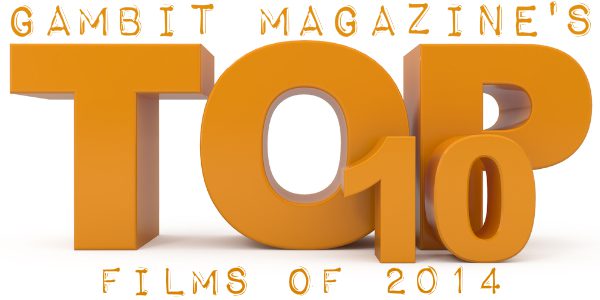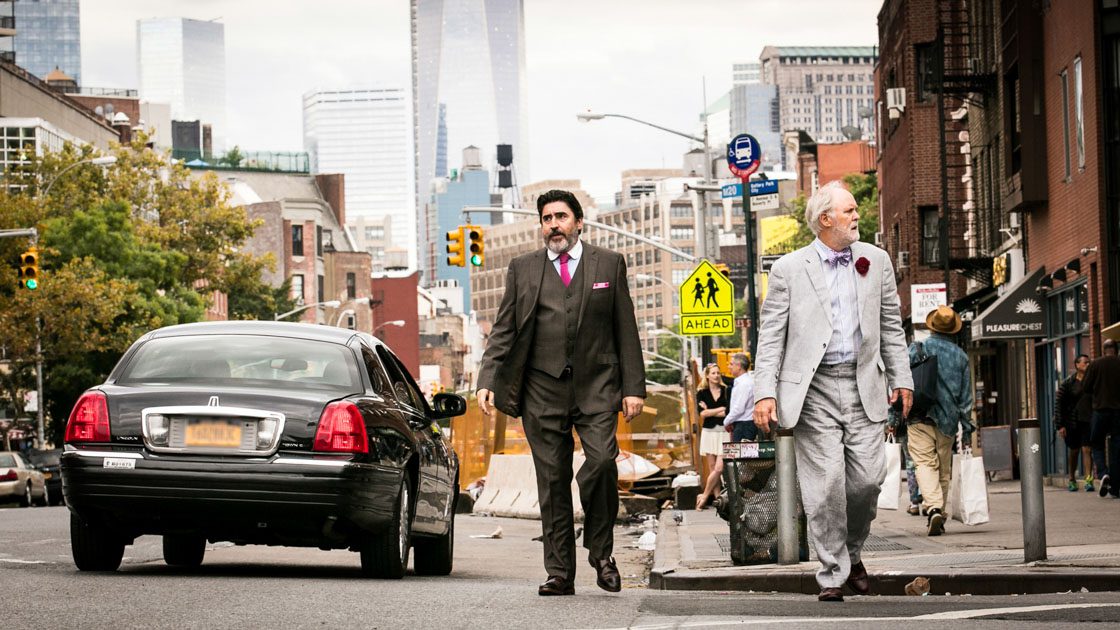It’s not often these days that people can agree on much of anything, but the verdict is nearly unanimous that 2014 was a bad year. Every time you turned around it seemed there was another story of men badly mistreating women (and often getting away with it) or the severe racial injustices that still plague this country or beloved stars departing too soon.
Entertaining diversions were in tall order and while most of the year was a disappointment and a bust (save for D’Angelo’s long awaited new masterpiece and the return of some robust economic numbers towards the end), movies and television actually did seem to come through. It was a strong twelve months in that respect with yet another plethora of great acting (I don’t envy the people who will have to single out just one favorite performance in each category come awards time). Some remarkable filmmakers reached even higher and solidified their reputations. Others just made piles of cash.
That said, as with any other year, I didn’t see every movie. Big blockbusters like Godzilla and The Dawn of the Planet of the Apes went unseen by me as did movies that would likely have a shot at the list like The Immigrant and the documentary Citizenfour. Critical darlings like A Most Violent Year, Goodbye to Language, and Leviathan would all plausibly be among my favorites but haven’t made it to any Los Angeles theaters in time. And as it always, there are some popular choices that you won’t find below for good reason. By me Paul Thomas Anderson and David Fincher are first rate filmmakers, but neither Inherent Vice nor Gone Girl could quite cut it. Guardians of the Galaxy, the big hit of the summer and likely the ultimate fan favorite, was just okay (I found it fatally unimaginative and derivative and Chris Pratt’s part obnoxiously self-pleased).
I like Jim Jarmusch fine, but Only Lovers Left Alive took an exceptional cast and a terrific hook (vampires seriously bored by their immortality) and didn’t do much of anything with it. And while Birdman has earned massive praise and landed on many lists, I have seen it twice and can only count myself as a fan, not an awed worshipper. It’s a hugely entertaining picture (anchored by an excellent turn from Michael Keaton), yes, but the slick technical design of it and the psychological demons and bizarreness all add up to a picture that’s significantly more fun than profound.
No list praising the finest films of the year would be complete without signaling out the most appalling duds. Blended is the third time Adam Sandler and Drew Barrymore have starred opposite each other, and let’s all hope it’s the last. A Million Ways to Die in the West is truly witless and incompetent. Seth MacFarlane should leave acting to actors and learn how to construct a coherent, fully realized joke. Sin City 2 wasn’t awful, but a sizable disappointment. Phillip Noyce’s pretty boy adaptation of The Giver should have never happened. Darren Aronofsky is a talented director but he engaged nearly all his worst instincts with the staggering pretentiousness and joylessness of Noah.
The absolute bottom of the barrel was the totally dead conclusion to the Atlas Shrugged trilogy and racist troll Dinesh D’Souza’s inept and infantile America: Imagine the World Without Her. The former fought against endless budget constraints and an ever changing cast to answer the question “Who is John Galt?” without a single thing going right. The latter, D’Souza’s smug, idiotic opinion piece, was even more of a drag to sit through than his offensive 2016: Obama’s America. You’d think all the crazed hatred and paranoia of the President could at least lend itself to more inspired protest-art. Aspiring writers and directors, take note, and make sure you avoid all the mistakes that these people made.
Now onto the movies from this year that you should watch, praise, study, and emulate:
10. Love Is Strange
John Lithgow and Alfred Molina-two of the most consistently fine actors we’ve got-play Ben and George, a couple of forty years who have just tied the knot. What should be the happiest time quickly comes to an end when the news of their wedding gets George fired from his teaching job at a religious private school.
Instead of turning into some message movie or political rant, this beautifully rendered picture from filmmaker Ira Sachs observes as these two lovers fall on hard financial times and are forced to live apart. Some comedy is provided by Lithgow (in one of the year’s best performances) but without getting overwrought Love is Strange takes a heartfelt look at how damaging distance-any distance is-to people who are meant to be together. I would not trust someone who didn’t tear up by the end.
9. Whiplash

The truly great character actor J.K. Simmons and rising star Miles Teller shared some of the tensest, most verbally assaultive scenes in recent memory. Whiplash, the breakout film by Damien Chazelle, earned a lot of buzz this year for a fairly straightforward reason: it’s both really damn good and wildly entertaining. Over the top, yes, but that’s part of the point: Simmons in a blustering physical performance as a bully of a jazz band leader is as demanding as R. Lee Ermey’s drill instructor in Full Metal Jacket.
Like the freshman student he invites to the drum chair then viciously berates (Teller), he believes that greatness is the only goal worth pursuing and it only comes from the full, unblinking dedication of oneself. Polite pleasantries are a waste of time. Powered by a terrific brassy score, Whiplash was one of the year’s most exhilarating surprises.
8. Mr. Turner
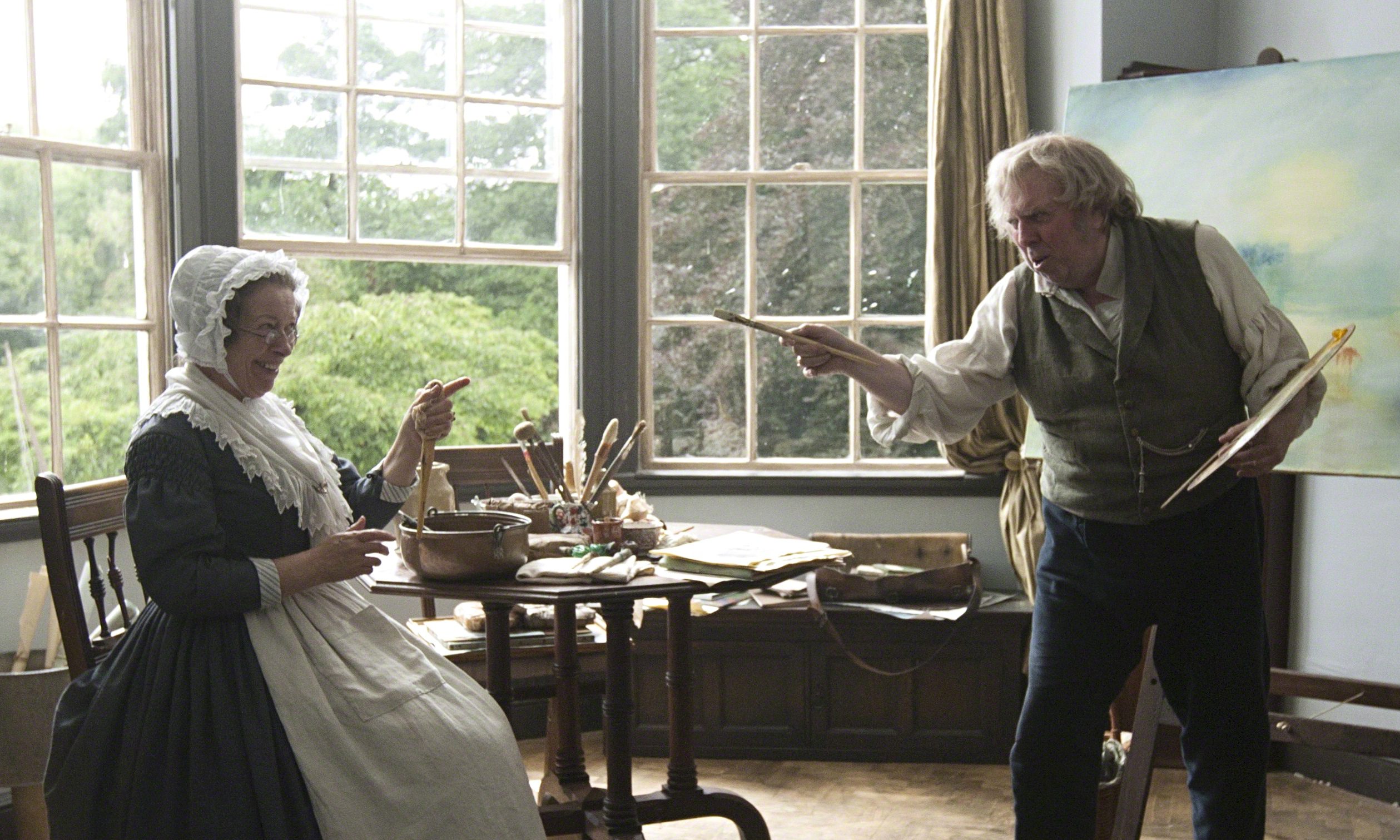
Biopics did not go out of fashion this year, but with Mr. Turner English director Mike Leigh has outdone them all. He has created a rich, free-form biographical picture about the painter J.M.W. Turner that doesn’t really adhere to any narrative structure. All the better for it, too. Among period pieces it has a rare verisimilitude: I can’t recall many movies set in that era which have had such a profound sense of time and place.
Leigh makes you feel like you’re watching history unfolding in real time during this study of art and celebrity in the mid-19th century. Turner’s first time having his picture taken (by a brand new contraption which he immediately suspects will be a threat to painters like himself) is a particularly special scene. Turner, as portrayed in a marvelous turn by a grunting, misanthropic Timothy Spall, is an eccentric coping with fame and criticism, but what makes Mr. Turner ultimately touching is the way he finds love with a widow wonderfully played by Marion Bailey.
7. The Babadook
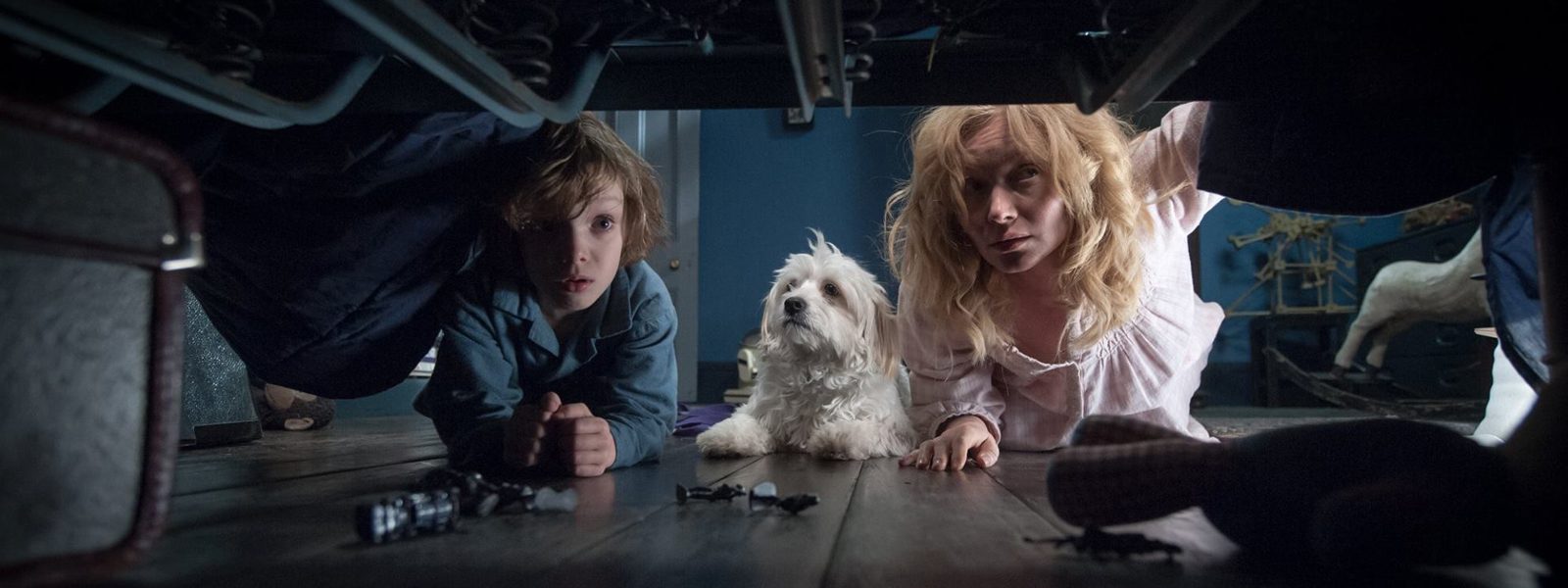
As much of a horror pic as it is a thriller about depression, this directorial debut by Jennifer Kent manages to avoid nearly every mistake that other movies in the genre usually suffer from. The Babadook is legitimately terrifying and smartly written; a down-under Gothic about a single mother (Essie Davis in the best performance by an actress this year) with a difficult six year old son who stumble upon a strange and truly sinister children’s book that takes over the house and their lives. Kent, in full command of the craft, plunges you into a state where nearly everything is creepy. The words “bring me the boy” have never been more chilling.
6. Life Itself
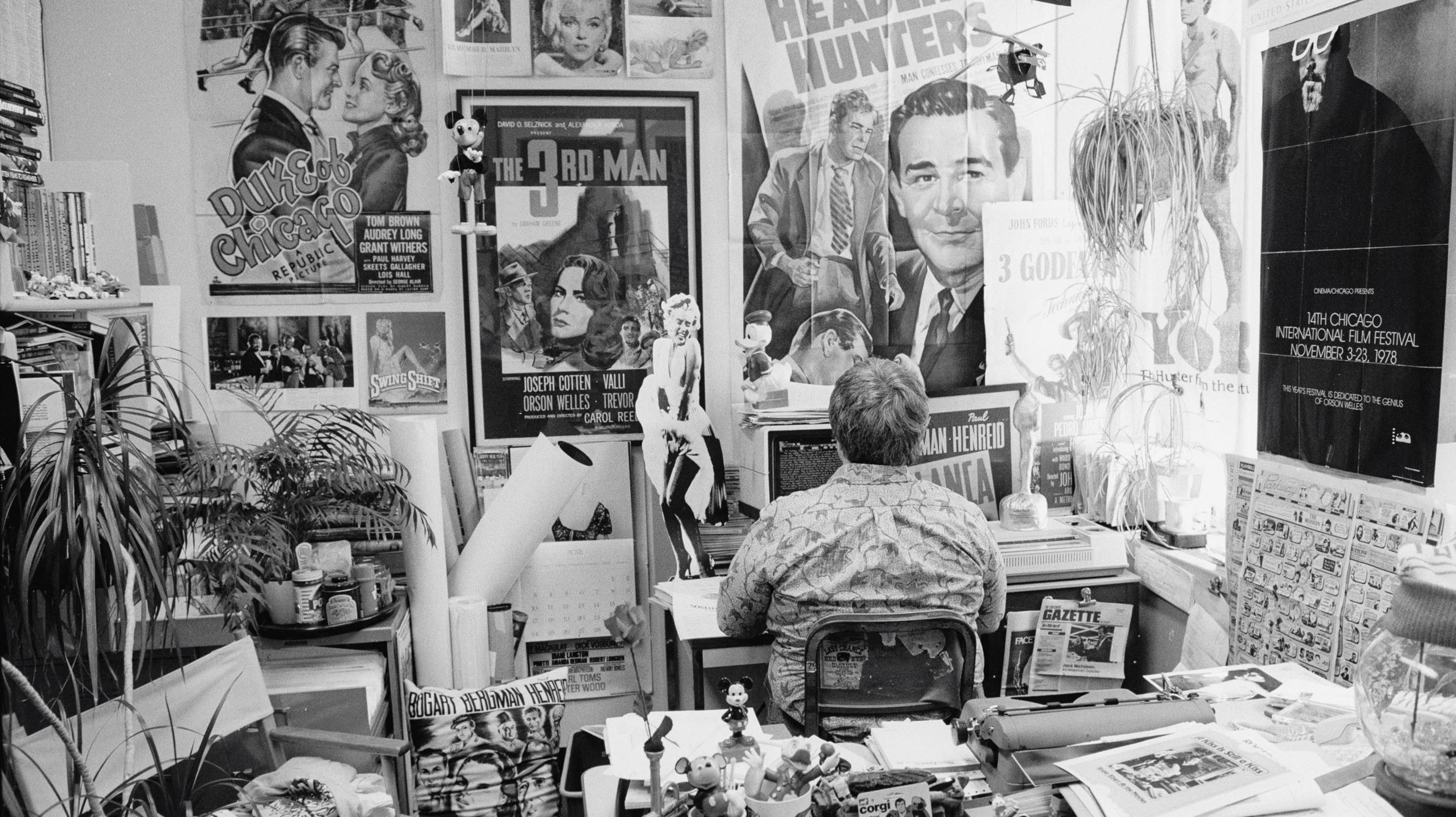
In 1994 Siskel & Ebert famously used the power of their show’s podium to get the sports documentary Hoop Dreams significantly more attention than it might otherwise have received (Roger would even go on to name it the best film of the decade). Nearly twenty years later the director of that movie, Steve James, got to return the favor as he turned his camera on the most beloved and best-known of American film critics.
An adaptation of his 2011 memoir and James brings us intimately, painfully close to Roger and Chaz near his final days. He also captures vividly every major chapter in Ebert’s life from his Midwestern upbringing to the love he finally found when he was 50 years old. Life Itself is a fascinating biography and delight for moviebuffs, yet also an inspiring story about what life lived to its fullest can be.
5. Under the Skin

Don’t settle for Lucy. Scarlett Johansson shone vastly brighter in the brooding, sexy menace of Jonathan Glazer’s art house Under the Skin. Based on the 2000 novel by Michael Faber that as adapted for the screen loosely calls to mind Bowie in The Man Who Fell To Earth, she plays an alien who easily seduces bored, earnest men as she drives around a glum Scottish town.
Set to Mica Levi’s screeching violin assault, the sequences where she lures men into the chemical bath that dissolves their bodies are truly unsettling. In an age where Christopher Nolan can rake in a fortune making inadequate movies that do all the thinking for you, the inky black Under the Skin thankfully doesn’t show any interest at all in providing answers or comfort.
4. Foxcatcher
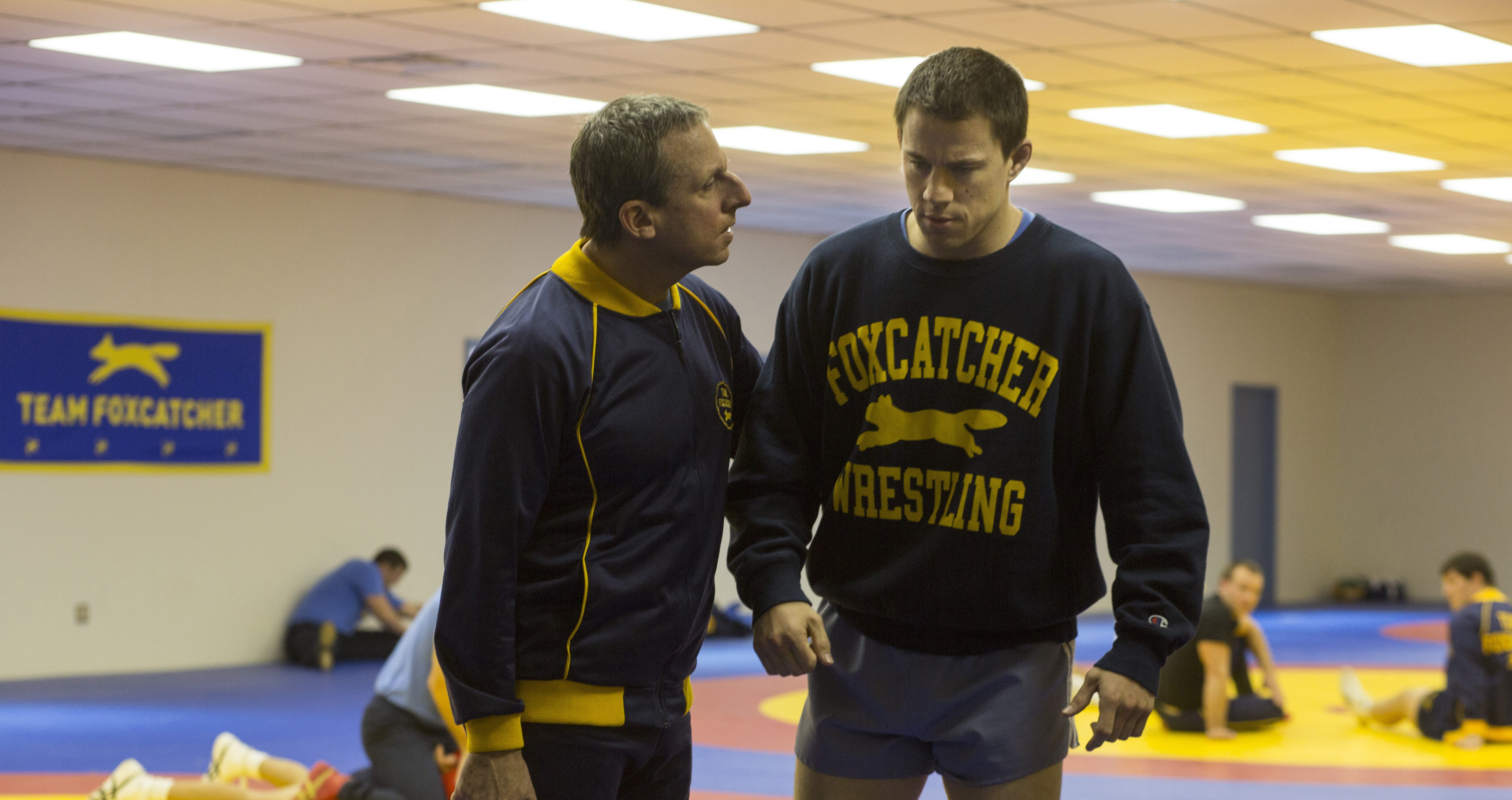
Proof that Steve Carell is a dramatic actor. Proof that Chaning Tatum actually is an actor. Foxcatcher, from the unflashy and accomplished Bennett Miller, is the most densely layered picture of the year: an intricate saga of sports, family, competition, privilege, insanity, and all-American tragedy.There’s more than a touch of the satirical in Miller’s depiction of John DuPont, a member of the famous wealthy family who was able to buy his way into the world of wrestling at the same time his mental state deteriorates.
Tatum and Mark Ruffalo-in the movie’s greatest performance-play the Olympic gold-winning brothers he pays to move to his estate and help him build his team. The hypnotically slow Foxcatcher is all about the progression to that final senseless and cruel act. It’s every inch as haunting as Miller’s Capote was.
3. Selma
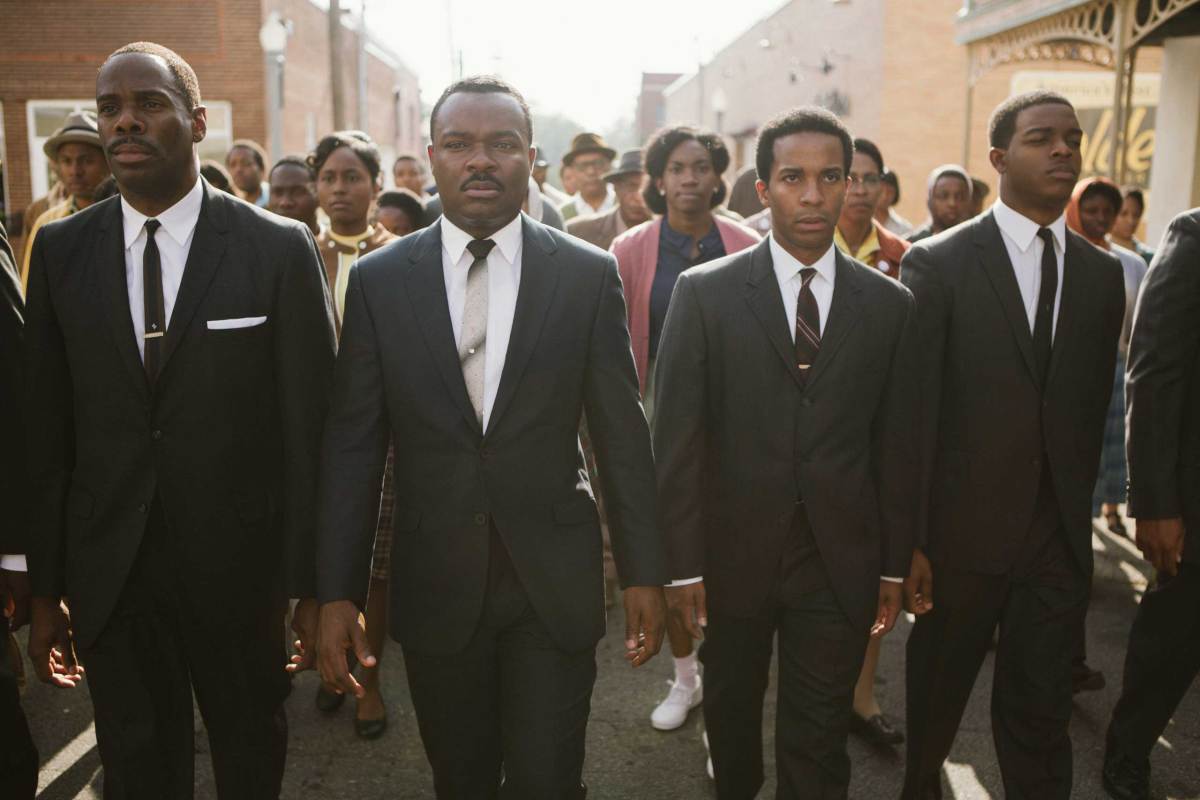
Now is the time for a cinematic retelling of the march Martin Luther King, Jr. led on Selma, Alabama and the hatred and brutality that made taking to the streets necessary. Ava DuVernary’s explosive and brilliant film (with an excellent screenplay by Paul Webb-and though this is itself a matter of controversy-including considerable input from her) is bracingly new-school and viscerally effective.
The recreating of the church bombing that killed four black girls is one of the most jarring and upsetting things I’ve ever seen at the movies. Selma balances the political and the personal beautifully and shows clearer than ever the depraved insanity of segregation and race-based violence. The voting rights King and others like him were demanding be enforced were no luxury, but a life and death matter. Leading an extraordinary cast, David Oyelowo is commanding as MLK, playing him as a radical activist, strategic and impatient; a haunted man courageous yet duly terrified.
2. The Grand Budapest Hotel
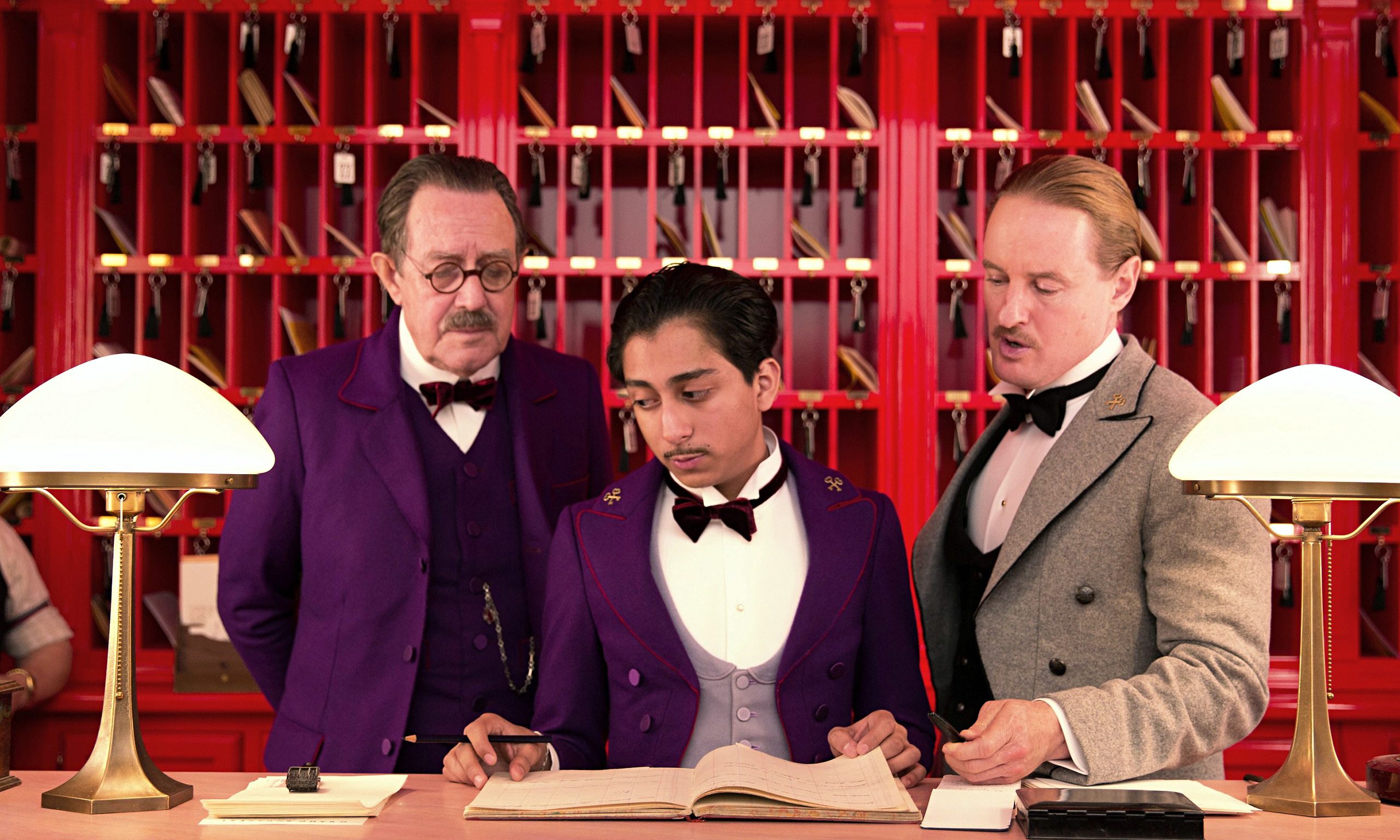
No performance this year was more delightful, more virtuosic, more damn fun to watch than Ralph Fiennes as the concierge of a prominent hotel in a fictional East European country on the eve of war. He’s always been an actor of a certain classic patrician stature and he plays on that brilliantly here (he’s been amusingly profane before-think In Bruges-but the context makes it even funnier here).
This is a perfect vehicle for him: Wes Anderson is a director on a roll and The Grand Budapest Hotel is his best live-action film since Rushmore. On the surface it’s a dazzling, immensely satisfying entertainment executed with imagination and dexterity. Anderson, operating here with the complete creative room to do pretty much anything, reveals the picture to be more than witty farce. It ends on a truly bittersweet note of strange power and along the way the love story between refugee Zero Moustafa (Tony Revolori as a youth; F. Murray Abraham as an old man) and a baker girl (Saoirse Ronan) found Anderson at his most touchingly heartfelt.
1. Boyhood
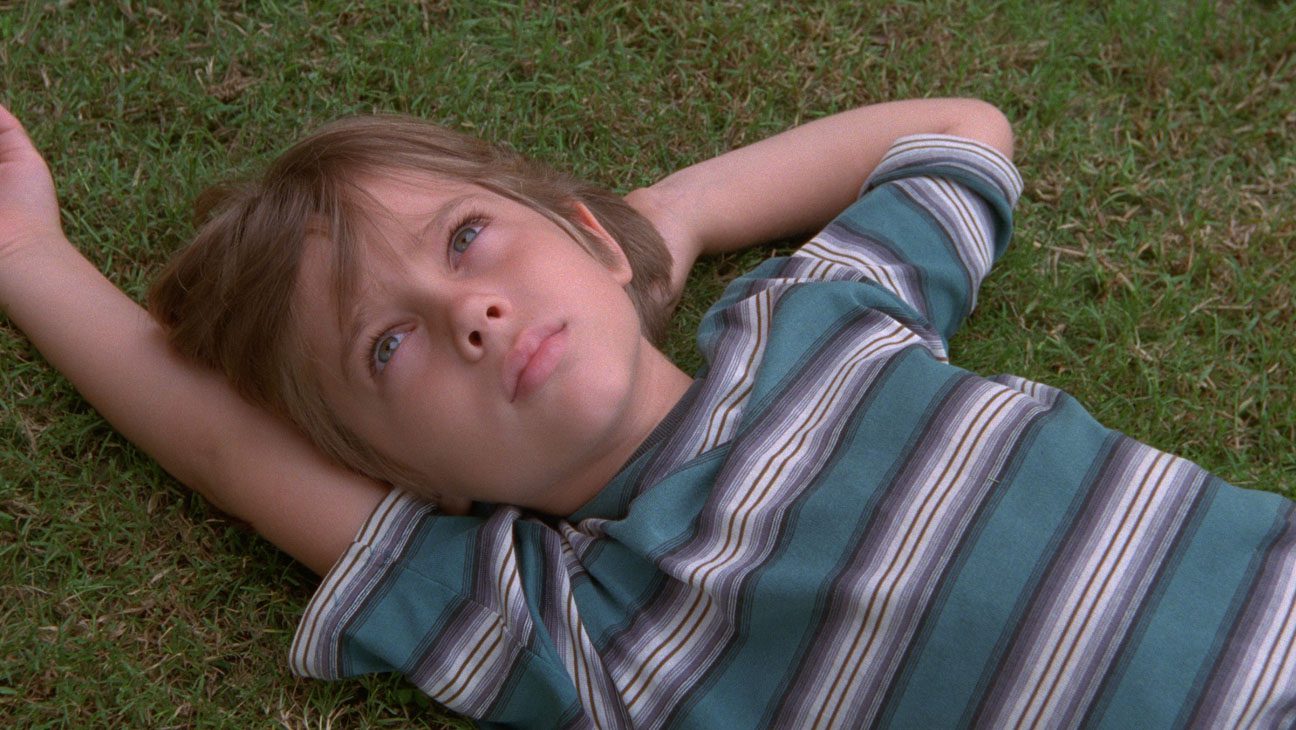
Following his triumphant end to the Before trilogy last year, Richard Linklater is arguably the most significant director working right now. With Boyhood he has arguably outdone himself. Filming the same kid (Ellar Coltrane along with his daughter, Lorelei) over the course of twelve years he has made a stunning snapshot of life and growing up; the funniest, most humane, most inspiring, and most captivating movie I saw this year (it plays like the non-pretentious, non-self absorbed Tree of Life).
There are no major plot strands or scenes of heightened emotional catharsis, though there are tense and hurtful moments and Patricia Arquette’s deeply empathetic portrayal of a single, working mom (Ethan Hawke is wonderful too as the dad). Instead Linklater lets the moments that comprise life flow into each other; the invigorating rush of the spectacular now as he watches the years tick by. It finally builds to something greater and more forceful than the sum total of its brainy, engaging conversations. Watching Boyhood I got the exciting feeling that I might understand something about life that I didn’t before. There’ll never be another film quite like it.

